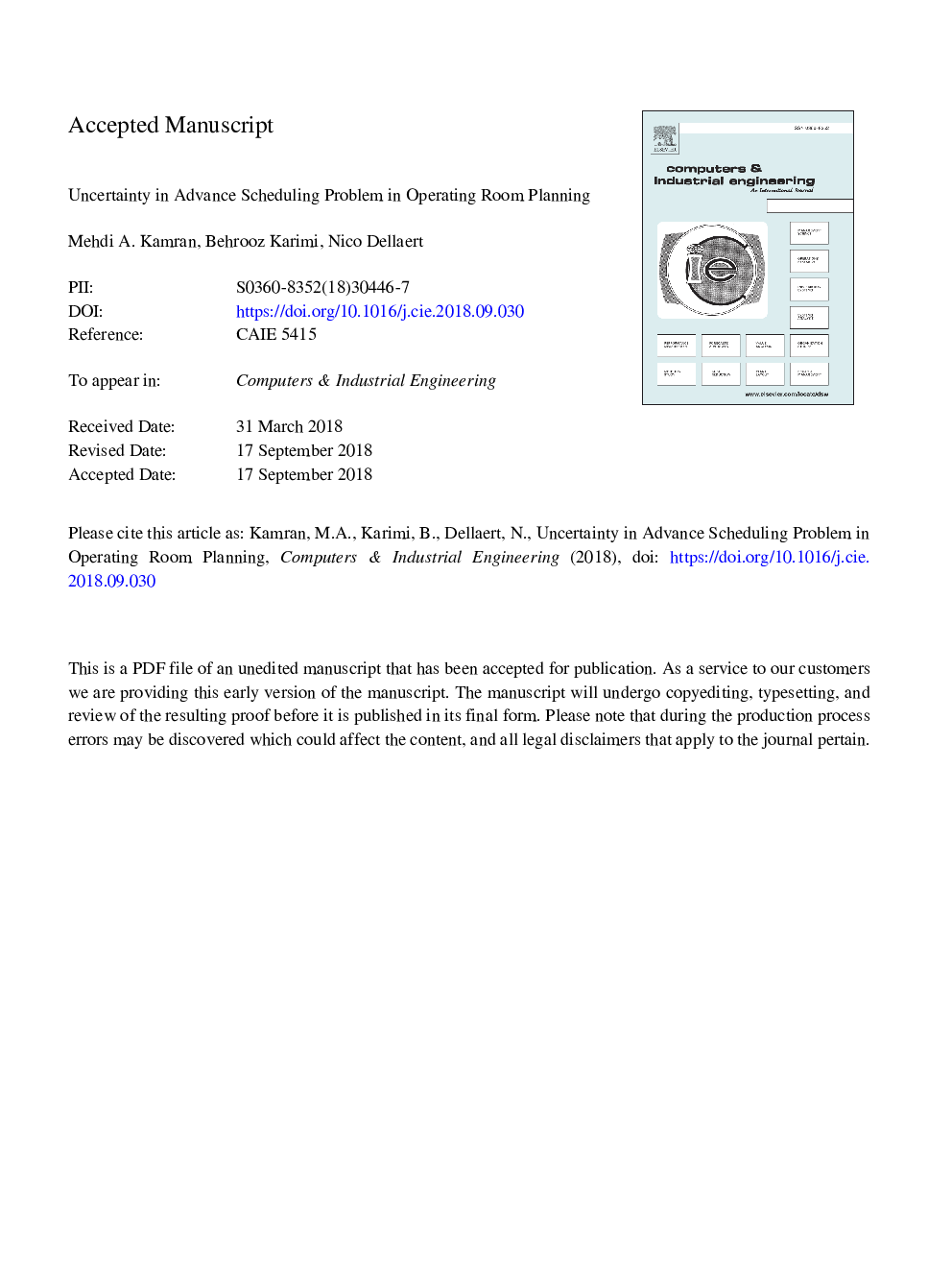| Article ID | Journal | Published Year | Pages | File Type |
|---|---|---|---|---|
| 11027465 | Computers & Industrial Engineering | 2018 | 44 Pages |
Abstract
In this paper, we consider the Advance Scheduling Problem, in which candidate patients from the patients' waiting list have to be selected and allocated to the available operating room blocks in a short-term schedule, taking into consideration a number of restrictions. We determine the available blocks by a modified block scheduling strategy. We propose multiple objectives, including minimization of the patients waiting time, tardiness, cancellation, block overtime, and the number of surgery days of each surgeon within the planning horizon. In our problem, uncertainty is taken into account via stochastic surgery durations, but also a deterministic version is considered for reasons of comparison. We approach the problem with different formulations of two-stage stochastic programming and two-stage chance-constrained stochastic programming. We solve the proposed models through the sample average approximation (SAA) method and Benders decomposition technique. Based on examining the approaches on real hospital data, we illustrate that deterministic solutions do not fit properly in the stochastic environment for this problem. We also demonstrate that using a chance-constrained approach decreases the considerable variation between the deterministic and stochastic solution. Finally, we show that the SAA method and Benders decomposition algorithm can generate effective solutions in a relatively reasonable computational time in medium-sized problems.
Related Topics
Physical Sciences and Engineering
Engineering
Industrial and Manufacturing Engineering
Authors
Mehdi A. Kamran, Behrooz Karimi, Nico Dellaert,
